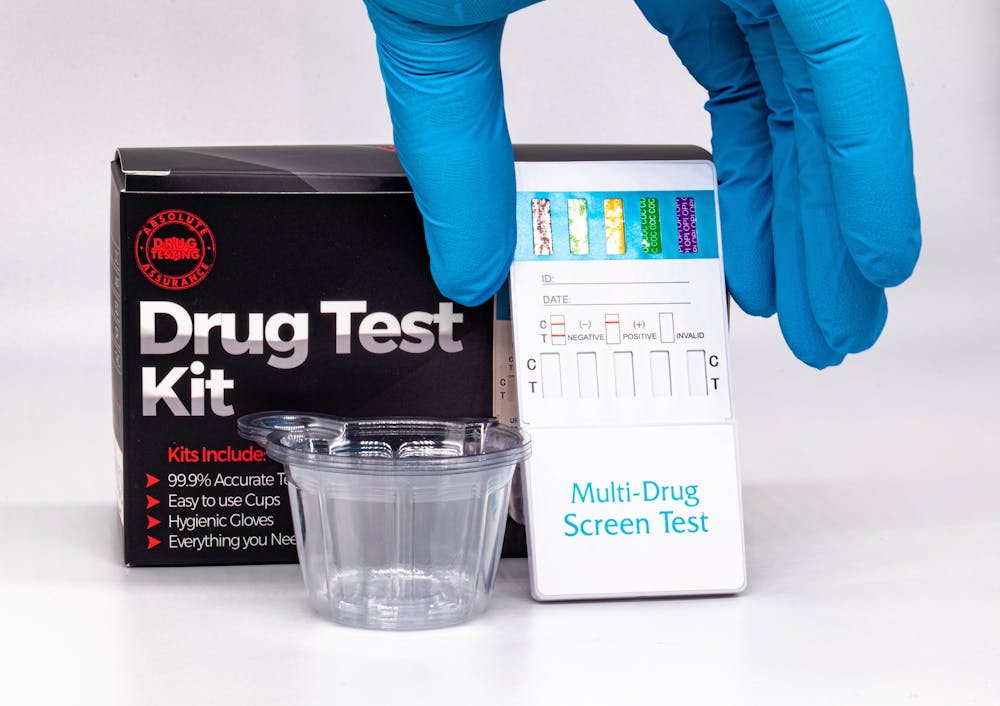What steps should you take if you’re on probation and fail a drug test, especially when facing how to do random drug testing? This situation can be incredibly stressful and confusing, but understanding your rights and the possible actions to correct the course is essential.
This guide delves into the intricate details of dealing with a failed drug test during probation, providing insights into how random drug testing can impact you, the potential consequences, and how to navigate the aftermath. It highlights crucial strategies to minimize negative outcomes and stresses the importance of knowing and asserting your rights in these challenging times.
Table of Contents
The Consequences of Failing a Drug Test Explained
A failed drug test during probation doesn’t automatically determine your fate but triggers a series of considerations by the authorities overseeing your case. Consequences vary widely, from a warning for first-time minor infractions to more severe penalties like the revocation of probation for repeated offenses.
The severity often hinges on your probation terms, your history of substance abuse, and the nature of your original offense. It’s a situation fraught with uncertainty, and your immediate steps can significantly influence the outcome.
Additionally, the specific substance detected in the drug test and the levels present can impact the severity of the consequences. Courts and probation officers also consider your overall compliance with other terms of your probation, such as attendance at counseling sessions or community service completion.
In some cases, a failed drug test may lead to mandatory enrollment in a substance abuse treatment program as an alternative to harsher penalties. Furthermore, responding to a failed drug test may involve increased testing frequency or additional monitoring to prevent future infractions. Ultimately, each case is evaluated individually, aiming to balance accountability with the opportunity for rehabilitation and positive change.
Navigating the Aftermath of a Drug Test Failure During Probation
The moments after learning about a failed drug test are critical. Typically, you’ll meet with your probation officer to discuss the situation. This meeting is your chance to present your case, explain any extenuating circumstances, and show a willingness to adhere to stricter guidelines or enter a treatment program.
How you handle this interaction can greatly affect your officer’s recommendation to the court, potentially leading to more favorable terms or interventions rather than punitive measures.
Preparing for this meeting with honesty and responsibility is key. It’s important to reflect on the reasons behind the failed test and be ready to discuss these openly. Demonstrating a genuine commitment to overcoming substance abuse by proposing a plan for treatment or recovery can also make a significant difference.
Steps to Take Following a Drug Test Misstep
Admitting the Problem
Recognizing and accepting that you’ve failed a drug test is the first step in addressing the issue head-on. This acceptance is not just about taking responsibility; it’s about acknowledging the need for change and being open to the steps that come next. It sets a foundation of honesty and accountability, which are vital in navigating the aftermath of a drug test failure.
Seeking Assistance
Actively looking for help, whether through rehabilitation programs, counseling, or support groups, shows a willingness to address and work through substance abuse issues. This step is about more than fulfilling probation requirements—it’s a personal commitment to your health and well-being. Seeking assistance also means communicating with your probation officer and the court that you are serious about making positive changes.
Engaging with Your Probation Officer
Open and transparent communication with your probation officer is essential. It can help adjust your probation’s terms to include necessary treatment or support systems. Additionally, keeping them informed about your efforts to seek help can positively influence their reports to the court, potentially leading to more supportive measures rather than punitive ones.
Educating Yourself
Understanding the specific conditions of your probation and the rights you have in this situation can significantly impact your ability to navigate this process successfully. Knowledge is power, and being informed about the potential consequences and options available can help you make strategic decisions about your next steps. Additionally, being aware of your legal rights can protect you from possible violations of your rights during this period.
Does Failing a Drug Test on Probation Lead to Jail Time?
The prospect of jail time is a prevalent concern among those who fail a drug test on probation. While it’s a potential outcome, especially for severe or repeated infractions, many courts prioritize rehabilitation over punishment, particularly those actively seeking help or demonstrating progress in their recovery efforts. Your history, the nature of your probation, and your actions following the failed test are all considered in determining the next steps.
Can a Lawyer Mitigate Penalties for a Failed Drug Test?
Yes, legal representation can be pivotal. A knowledgeable attorney can navigate the legal system, advocate for leniency or alternative sentencing, and help you understand your rights. They can argue on your behalf, emphasizing efforts toward rehabilitation and the potential for your positive contribution to society. Legal counsel can also ensure that your case is handled fairly and that all procedural rights are respected.
- Navigating Legal Complexities: A lawyer can guide you through the intricate legal processes, ensuring you understand each step and what’s expected of you.
- Negotiating with Prosecutors: Skilled in negotiation, attorneys can communicate with prosecutors to seek reduced charges or alternative penalties, such as rehabilitation programs, instead of jail time.
- Presenting Evidence of Rehabilitation: They can compile and present evidence of your efforts towards rehabilitation, showing the court your commitment to change.
- Protecting Your Rights: Lawyers protect your rights throughout the legal process, particularly against unfair treatment or violations.
- Seeking Expungement: In some cases, a lawyer might work towards erasing the drug offense from your record, aiding in your long-term personal and professional development.
- Advising on Compliance: They advise staying compliant with probation terms and avoiding future legal issues.
- Offering Support and Guidance: Beyond legal assistance, lawyers can offer moral support and guide you to substance abuse treatment and recovery resources.
Wrapping Up
Facing a failed drug test on probation is undoubtedly challenging, but it’s not the end of the road. Understanding your rights, the potential consequences, and proactive steps to mitigate the impact can significantly affect the outcome.
Seeking support, whether through substance abuse programs or legal assistance, can make a significant difference in the outcome. Remember, the journey to rehabilitation is valued, and demonstrating a sincere commitment to overcoming substance abuse can lead to more supportive and constructive interventions from the court.


